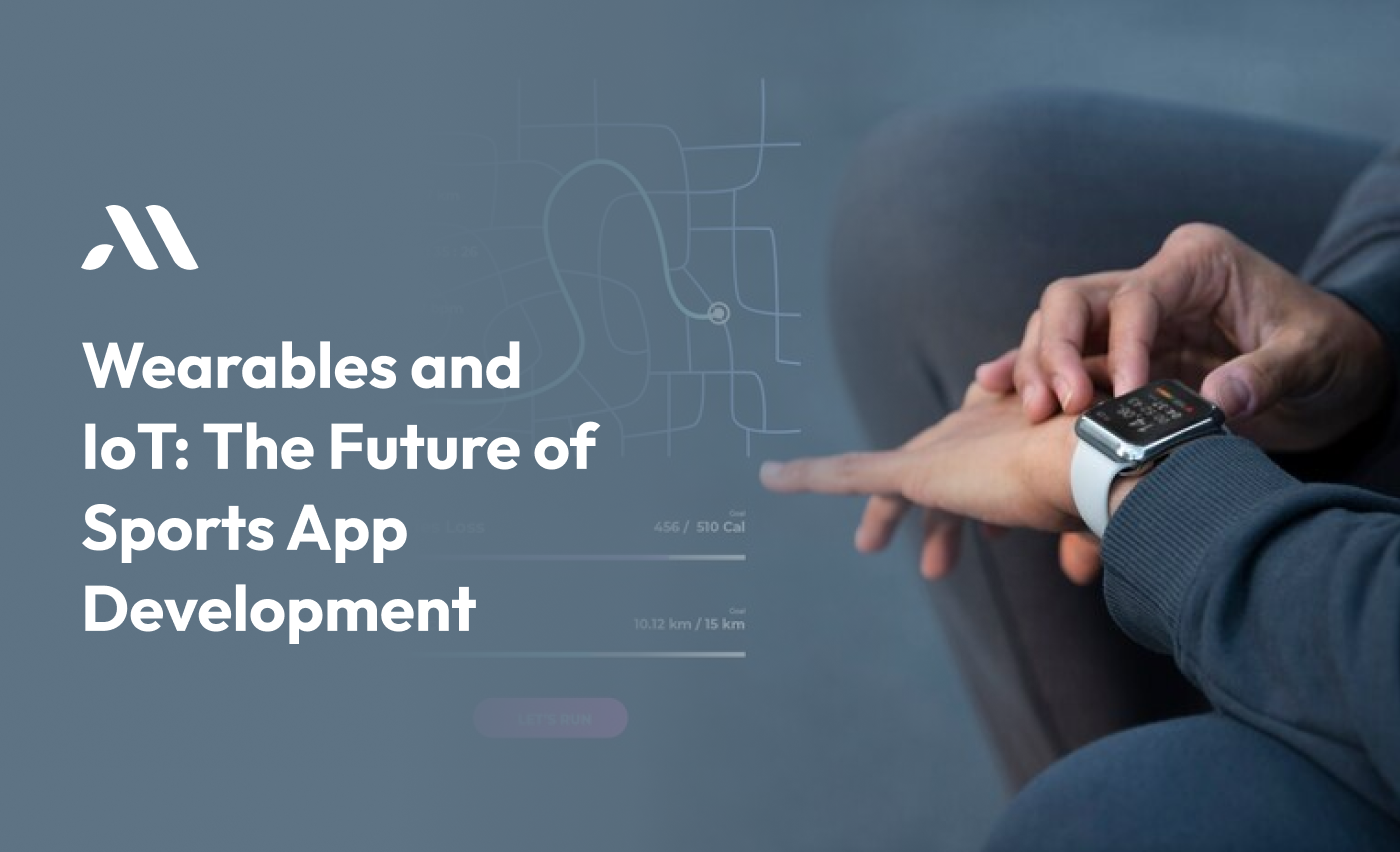In today’s world, technology is changing how we play sports and stay healthy. Two important parts of this change are wearables and IoT (the Internet of Things). Wearables are devices like smartwatches or fitness bands that you can wear on your body. They help track your activities, like how many steps you take or how well you sleep. IoT means connecting devices to the internet so they can talk to each other. Together, wearables and IoT are changing the game in sports app development. In this article, we will explore how these technologies are shaping the future for sports business owners.
- 57% of athletes use wearables to track their performance.
- 80% of sports teams are expected to use IoT devices by 2025.
- Market growth for sports wearables is predicted to reach $20 billion by 2026.
What Are Wearables?
Wearables are devices that you can wear, usually on your wrist, like smartwatches or fitness trackers. These devices collect information about your body and activities. For example, a smartwatch can tell you how many calories you burn during a game or how fast you run.
Fun Fact: Did you know that about 1 in 5 people in the United States use wearables? That’s a lot of people staying fit with technology!
What is IoT?
The Internet of Things, or IoT, connects devices to the internet. This means different devices can share information. For example, if you have a smart basketball, it can tell your smartwatch how many times you shot the ball and how many you made.
Note: When devices connect through IoT, they can help improve performance by sharing data. This data can show how to get better at sports!
How Wearables and IoT Work Together
Wearables and IoT work together to provide real-time information to athletes and coaches. Imagine a coach who can see all the data from players' wearables on a big screen. They can check who needs more practice or who is doing great. This helps everyone get better, faster!
Tip for Sports Business Owners
If you are a sports business owner, think about how you can use wearables and IoT in your sports app. You can create apps that track performance, health, and more. This can help athletes improve and also keep fans engaged.
Why Are Wearables Important for Sports App Development?
Better Performance Tracking: With wearables and IoT, athletes can see how they are performing in real-time. They can track their heart rate, speed, and other important stats. This data helps them train better and avoid injuries.
Personalized Coaching: Coaches can use the data from wearables to give personalized advice to each player. This means each player gets the help they need to improve, making the team stronger.
Increased Fan Engagement: Fans love data! Apps that show live stats from wearables can make watching sports even more exciting. Fans can see how fast their favorite players are running or how high they jump.
Reminder: When developing sports apps, think about how to include features that allow fans to interact with the players' stats. This can create a more engaging experience!
How to Incorporate Wearables and IoT in Sports Apps
1. User-Friendly Design
Make sure your app is easy to use. Use bright colors, simple words, and big buttons. This helps everyone, even those who are not very tech-savvy, to use your app.
2. Real-Time Data Sharing
Include features that let athletes and coaches see data in real time. This could be scores, health stats, or workout tips.
3. Social Features
Add options for users to share their achievements on social media. People love to share their progress, and this can help promote your app.
4. Gamification
Make training fun by adding game-like features. For example, users can earn badges for completing workouts or challenges. This keeps them motivated to keep improving.
"Wearables and IoT are not just trends; they are changing how athletes train and compete," says Jane Doe, a tech expert in sports development. “Apps that integrate these technologies will lead the future of sports.”
Also Read - Mobile App Development Process with Full Guide
Challenges of Wearables and IoT in Sports App Development
While wearables and IoT offer many benefits, there are some challenges:
- Data Privacy: It’s important to keep users' data safe and private.
- Technology Costs: High-quality wearables can be expensive to develop and maintain.
- Integration Issues: Ensuring that all devices communicate effectively can be challenging.
Overcoming Challenges
To overcome these challenges, you can:
- Ensure Strong Security: Work with your app development company to prioritize data security.
- Budget Wisely: Plan your budget to cover development and maintenance costs.
- Test Thoroughly: Make sure everything works together seamlessly before launching your app.
Conclusion
The future of sports app development lies in the integration of wearables and IoT. By understanding and using these technologies, sports-related business owners can create innovative apps that enhance performance, prevent injuries, and engage fans. Whether you’re a coach, a player, or a fan, wearables and IoT are here to make sports more exciting and connected. Don’t miss out on this opportunity to be part of the future!
Unlock the future of sports with MicraSol! Let us help you create amazing apps that connect wearables and IoT. Your athletes and fans will love the experience! Contact us today to start building an app that makes a difference in the sports world. Together, we can achieve great things!
As we move forward, embracing wearables and IoT in your sports-related business can set you apart. So, think about how you can use these tools to create amazing experiences for your users. Remember, the possibilities are endless!








